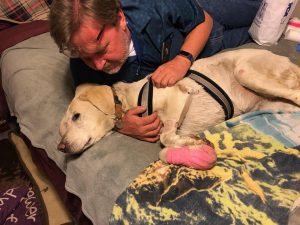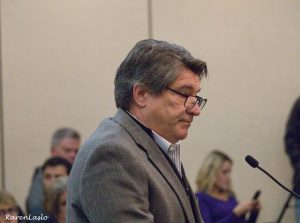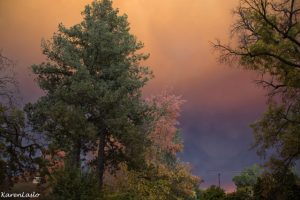
Allan Stellar with Angel
by Allan Stellar
That awful, awful day.
On that awful day, when Paradise was engulfed in flames, I hugged my yellow lab Angel goodbye. I woke up early, 5 a.m., and decided to leave for work without our normal early morning hike. I lived in the foothills, at 2,000 feet, some 37 miles from Chico where I had work to do as a home health RN.
I had lived in this off-grid solar house for a decade, enjoying the yip yap of coyotes in the country and sleeping on the deck under the stars on hot summer nights. Angel watched me dress that morning with an eerie gaze. It was as if she knew something was going to happen. As I left, I promised I would be back in the afternoon to take her for a hike.


